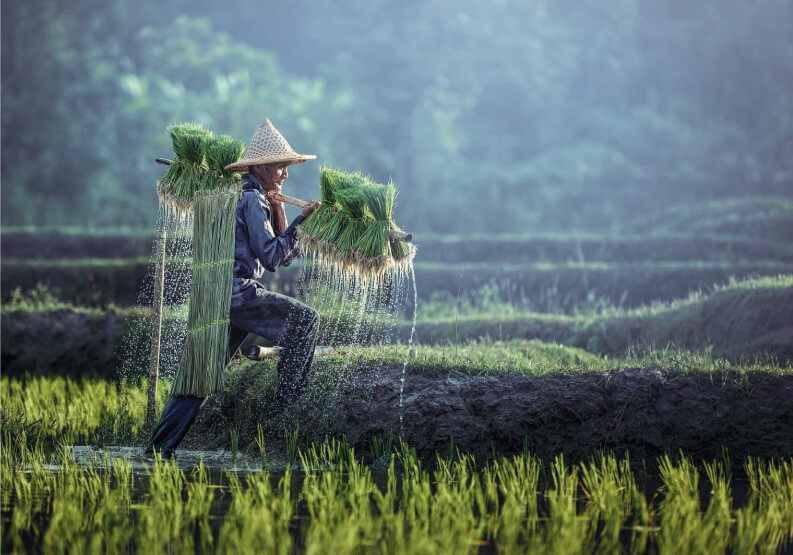Indonesia / Foreign Trade Policy
Indonesia Business Guide
- Country Profile
- Membership of Indonesia to Major International Organisation
- Political Outlook of Indonesia
- Economy of Indonesia
- General Sectoral Information
- Information About the Market
- Foreign Trade Policy
- Life in Indonesia
- Turkiye Indonesia Relations
- Diplomatic Relations
- Political Relations
- Relations In Education, Culture and Tourism
- Business Relations
- Sectors With Export Potential
Indonesia, which became a member of the World Trade Organization in 1995, imposes different customs duties on products originating from countries, which signed a free trade agreement or preferential trade agreement with Indonesia, especially ASEAN countries, in importation. Considering the limits reported to GATT, the maximum possible limit for agricultural products is 47% and it is 35.6% for nonagricultural goods.

TARIFFS AND OTHER TAXES
The country has an open economy, although imports are prohibited or restricted by quotas in some goods. Certain goods can only be imported by authorized importers. Indonesia implements tariffs and surcharges, which vary according to the needs and qualities of the product to be imported in order to regulate its imports activities.
The country imposes a 10% value added tax on all goods imported and produced in the domestic market and a sales tax ranging from 10% to 75% on luxury goods.
It has gradually facilitated the import of capital goods and intermediate goods since 1986 in order to allow domestic exporters to import the required inputs at competitive prices.
On the other hand, the process of lowering the related tariffs aimed at fulfilling Indonesia’s obligations under ASEAN trade agreements has been almost completed.
All these taxes for imported goods are collected at import points and calculated according to the value of the product, including import taxes.
NON-TARIFF BARRIERS
In exporting to Indonesia, many non-tariff barriers may be encountered due to relevant legislation and practices. In this framework, practices especially in agricultural products, food products with animal content, and in certain industrial products are remarkable. Additionally, the obligation to provide a pre-shipment inspection document for a significant number of product groups in Indonesia’s imports, import permits and licenses and letters of recommendation to be obtained from relevant institutions, and country/product restrictions imposed on imports for certain products create barriers that negatively affect trade.
Although halal certification, which is planned to be made compulsory in the future, is not compulsory in practice, as halal products are preferred in the country, Indonesian importers pay attention to the fact that the products that are within the scope of halal concept have halal certification. On the other hand, although it is tried to be changed, the halal certification system that is currently implemented and obliges certification to be carried out in Indonesia by the relevant Indonesian authority makes trade difficult.
There is a minimum unit price set for the calculation of customs duties in imports. Uncertainties in this practice sometimes create obstacles.
OTHER OBSTACLES
Indonesia’s forest products industry is strictly protected. Some companies operating in the field of cement, fertilizer and natural gas can benefit from various advantages and obtain unfair competitive powers due to being license holders.
PRACTICES REGARDING PRODUCT STANDARDS
The fact that standards applied in Indonesia are more flexible than international norms or compliance with standards is not compulsory in some areas, facilitates the compliance of imported products with the standards for certain sector products. The policy of conformity to standards is implemented by applying the Indonesian National Standards (SNI) published by the country’s standardization agency or international standards to products produced or imported domestically.
Pharmaceutical products and cosmetics to be imported to Indonesia are required to be registered with the National Medicines and Food Control Agency affiliated with the Ministry of Health. The domestic drug companies and authorized drug wholesalers are the ones who have to make this registration.
Foodstuff to be imported to Indonesia is required to be registered with the National Medicines and Food Control Agency affiliated with the Ministry of Health. The “Food Registration Certificate” to be obtained from this agency allows the entrance of such products to Indonesia. “Food Irradiation Certificate” must be obtained for imports of dairy products, meat, fish, fruits, vegetables, water and cereal products. In addition to the foregoing, there is a certification process to prove conformity of wheat flour to Indonesian standards. At the end of this process, “Wheat Flour Compliance Certificate” is obtained and imports can be carried out.
The label of all consumer goods to be imported to Indonesia must be written in Indonesian. Other languages can be used on the labels, but the main part of the label must be in Indonesian.




